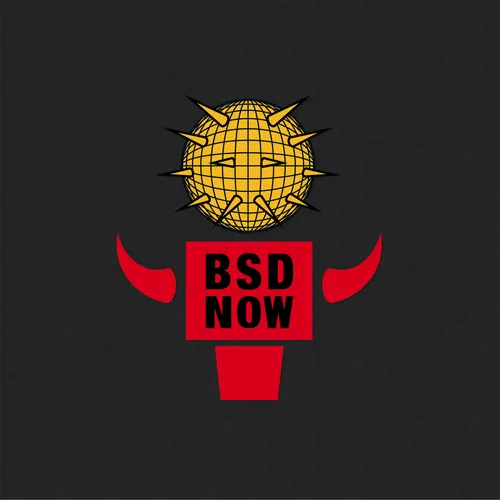9: CURRENT Events
- Author
- JT Pennington
- Published
- Wed 30 Oct 2013
- Episode Link
- https://www.bsdnow.tv/9
Headlines
Managed services using FreeBSD
- New York Internet, a huge ISP and service provider, details how they use FreeBSD
- Mentions using BSD technologies: pf, pfsync, carp, haproxy, zfs, jails and more
- Explains FreeBSD's role in commercial workloads on a massive scale
- Lots of cool graphs and info, check out the full write-up
***
OpenBSD boot support for keydisk-based crypto volumes
- So far, only passphrase-based crypto volumes were bootable
- Full disk encryption with key disks required a non-crypto partition to load the kernel
- The bootloader now scans all BIOS-visible disks for RAID partitions and automatically associates key disk partitions with their crypto volume
- No need to re-create existing volumes. Moving the root partition onto the crypto disk and running "installboot" is all that's needed
***
More Dragonfly SMP speedups
- Matthew Dillon has been committing lots of various SMP improvements
- Using dports builds on a 48-processor machine as a test
- The machine’s now building more than 1000 packages an hour
- Super technical details in the show notes, check 'em out
***
Getting to know portmgr
- Start of an ongoing series profiling members of the FreeBSD Ports Management Team
- In the first interview, they talk to longest serving member of the team, Joe Marcus Clarke
- In the second, Bernhard Frölich (who's also the creator of redports.org)
- Future segments will include the other members
- Topics include their inspiration for using FreeBSD, first time using it, lots of other interesting stuff
***
BSD Now at the top of iTunes
- BSD Now is on the front-and-center page of iTunes' technology podcast section
***
Interview - Henning Brauer - [email protected] / @henningbrauer
OpenBSD's pf firewall, privilege separation, various topics
Tutorial
Tracking -STABLE and -CURRENT
News Roundup
OpenBSD gets XBox360 controller support
- Adds support for Microsoft XBox 360 controller as a uhid
- Will make things easier for emulators in OpenBSD
- Are there people who regularly play games on BSD? Email us, might do a segment on it
***
PCBSD 10-STABLE ISOs available
- Early cut of the new stable/10 branch, not recommended for everyone
- A pkgng repository is available, but is missing a number of packages
- AMD KMS, new text installer, UEFI loader support, much more
***
Switching from Linux to BSD
- Yet another Linux user switching to BSD makes a thread about it
- Asks the community what some differences and advantages are
- Good response from the community, worth reading if you're a Linux guy
***
Unattended OpenBSD installations
- Unattended installations possible using DHCP and a "response" file
- The system gets an IP via DHCP, then fetches a config file with key=value pairs
- Can do automatic network setup, SSH, passwords, etc
- Still a work in progress
***
Feedback/Questions
- Kjell-Aleksander writes in
- Alex writes in
- Chad writes in
- Joshua writes in
- Craig writes in
- We want to especially thank Chris for his huge feedback emails with lots of show ideas.
***
